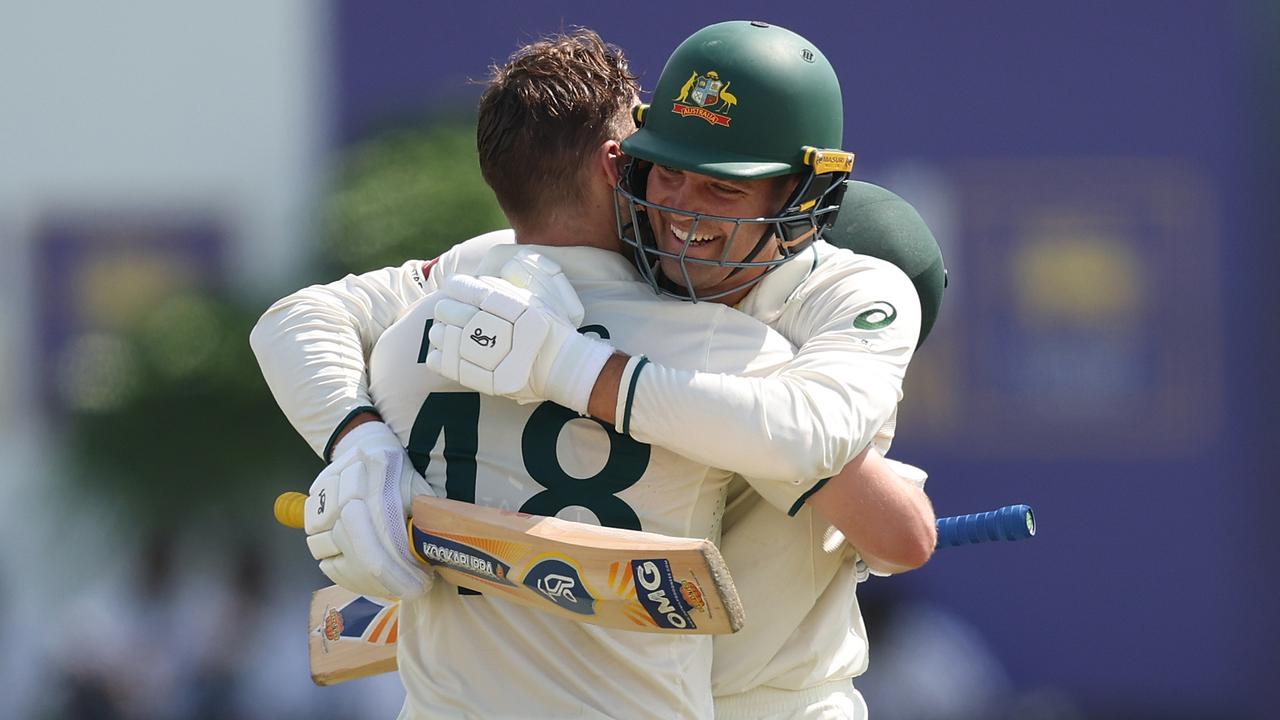Glenn McFarlane remembers his legendary mate, Scot Palmer and his iconic newspaper column Palmer’s Punchlines
The late Scot Palmer had a long list of wild stories from decades covering sport and footy, but the day someone pulled a gun in his pub might be the scariest.
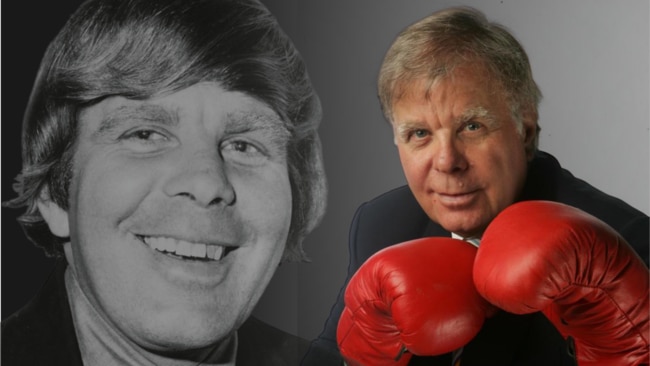
Sport
Don't miss out on the headlines from Sport. Followed categories will be added to My News.
There is a perfect symmetry about a tribute to legendary sports journalist and sports editor Scot Palmer appearing in a Sunday newspaper.
Scotty would have loved that!
For generations of Melburnians, Scotty and Palmer’s Punchlines were as much a part of their Sunday fare as World Of Sport was in its halcyon years or even Mum’s roast.
His column was unmissable; his thirst for a story unmistakeable; his audience reach almost unmatchable.
Readers would get up early in the morning to see what Punchlines had delivered each Sunday, though Scotty liked to think some readers consumed his column with a “nightcap” as the weekend drew to a close.
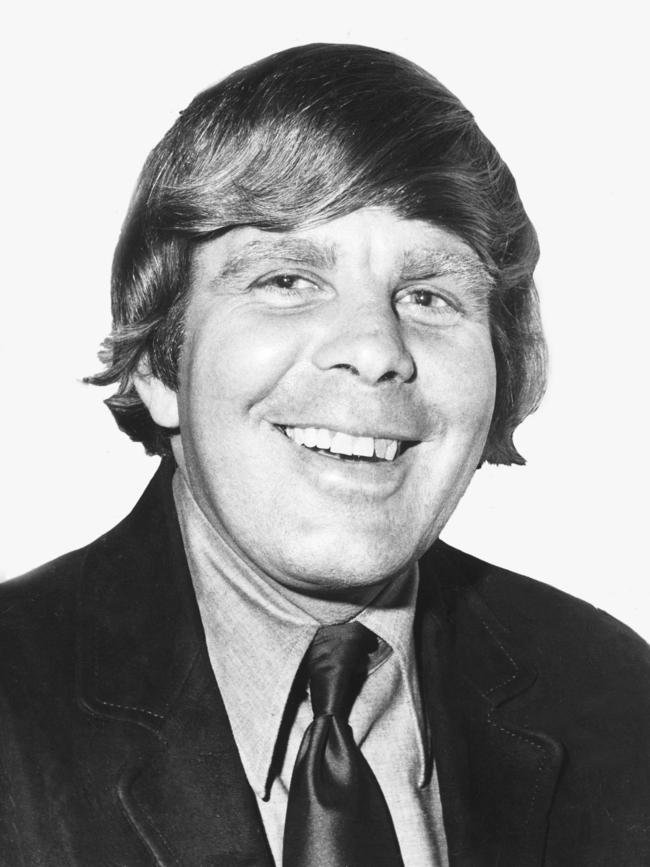
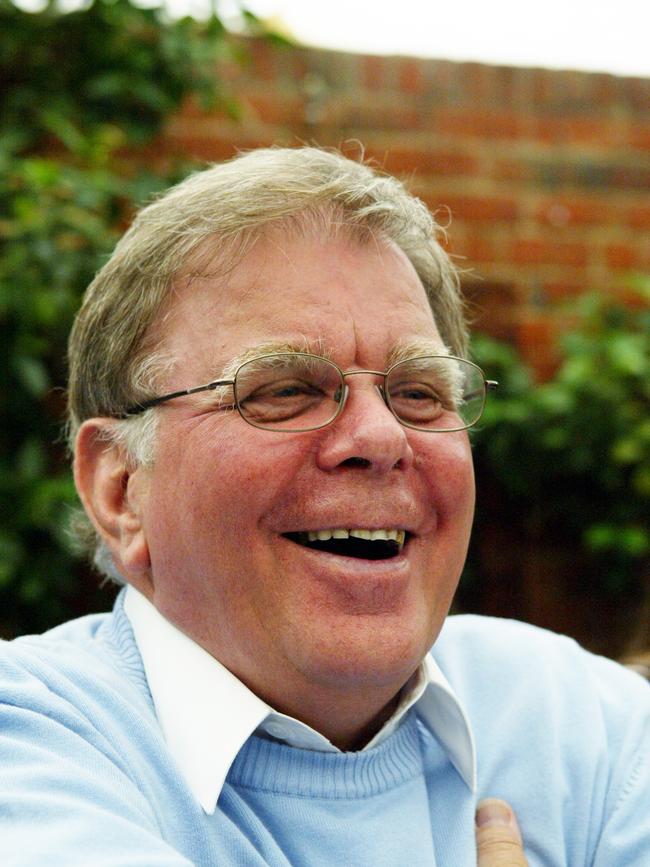
Scot Palmer, the man whose catchcry Keep Punching and whose columns kept generations of readers informed and entertained for more than five decades, passed away on Saturday, aged 84.
He was one of the most loved and respected footy scribes in the country.
He was also one of the first multimedia performers, using his column in the Sunday Press, Sunday Sun and Sunday Herald Sun to build a profile on television with Channel 7 as well as on breakfast radio with 3UZ (now RSN).
Many of his readers, viewers and listeners felt as if they knew him. Many did, as he never lost the common touch, and he loved nothing better than when someone from the public yelled out ‘Keep on punching, Scotty’ wherever he was.
BORN INTO THE JOB
The thrill of chasing exclusive stories without fear or favour and a sense of occasion drove Scot Palmer throughout his life.
He didn’t have to look far for inspiration.
His mother had been a Tivoli showgirl in the 1920s, and Scot inherited from her a love of performing in front of an audience.
His father, Clyde (Scot’s middle name), had been one of the state’s leading journalists, who was one of the first newsmen on the scene when gangster Squizzy Taylor was gunned down in 1927.
He also exposed the local wrestling scene as a sham and paid the price for his fearless reporting, being assaulted as part of a payback.
Scot maintained this attack contributed to his dad’s ongoing health issues, but admired his father’s zest to tell the truth.
He was always proud of the fact he featured as “a babe in arms” in Frank Hardy’s novel Power Without Glory as his father – whom Hardy thinly disguised as ‘Clive Parker’ – recovered from the attack.
In a nice touch, Graham Kennedy, the man who played his father in the ABC TV series based on the book, would star alongside Scot in the 1980 cult movie The Club.
Scot played a cameo in The Club as an eager reporter trying to get the inside story on a football club tearing itself apart.
It was art imitating life – and he loved it.
He even framed a handful of royalty cheques he got for his role instead of cashing them in.
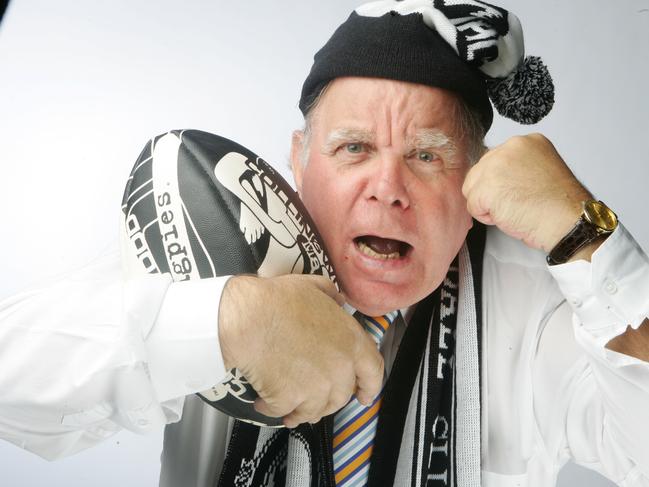
Born and bred in Richmond, but barracking for Collingwood, Scot did some early work at The Truth while still at school.
But when his uncle, Howard, advised him of a cadet opening at The Sun, the 17-year-old jumped at the opportunity in December 1954.
His dad told him – “Get a job at The Sun and never leave” – and it was advice that he would later impart to countless other aspiring journalists.
Scot followed that advice throughout his working life, even when The Age came knocking during the Sunday newspaper wars in 1989.
He soaked up the newsroom atmosphere as a young cadet including the rumble of the presses that shook the foundations of the building, saying years later: “The print, paper, sweat, even the smell of the oak panels in the executive corridor … those were the days.”
For a time, he was even the paper’s rock writer.
He didn’t mind The Beatles, but they weren’t a patch on his favourite, Elvis Presley.
At the Herald Sun’s millennium party in 2000, on the banks of the Yarra River, he donned a jumpsuit and belted out Suspicious Minds to his workmates – word perfect, with his audience in raptures, leaving them wanting more.
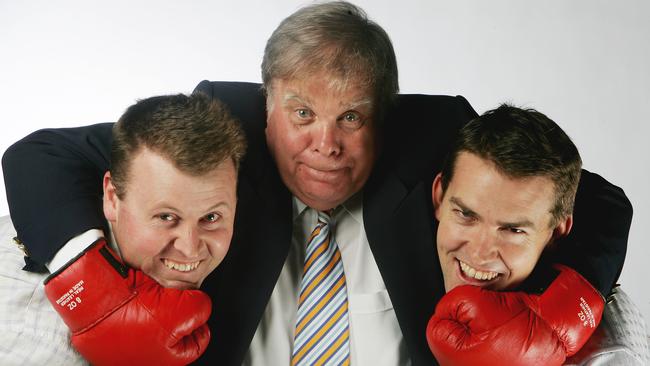
NEWS BREAKER
It became one of the most famous, prolific bylines in Australian media, but it wasn’t always centred on footy.
Scot (one t, even if it erroneously appeared with two at times) worked for the first 10 years of his career on general news.
“In my day, everyone came in a suit and tie and when the cadetship finished I had to wear a hat, otherwise we were sent home,” he said.
He won a Herald & Weekly Times scholarship to work for a time in London and New York before returning to Melbourne to work in sport.
He started with the VFA and broke so many stories – including St Kilda’s move to Moorabbin in 1965 – that he was moved to the main VFL beat. He never looked back.
One of the many editors he worked for, Harry Gordon, gave Scot one of the Sun’s first recognisable sports columns – SportsTalk – in 1967.
The pacy style and snippets became a forerunner of Palmer’s Punchlines.
In an era long before mobile phones, Scot made hundreds of phone calls per day, but loved nothing better than being out on the beat, meeting people.
He would always say, “You never get a story in a milk bar’.
Contacts are a journalist’s lifeblood, and Scot fiercely protected his sources.
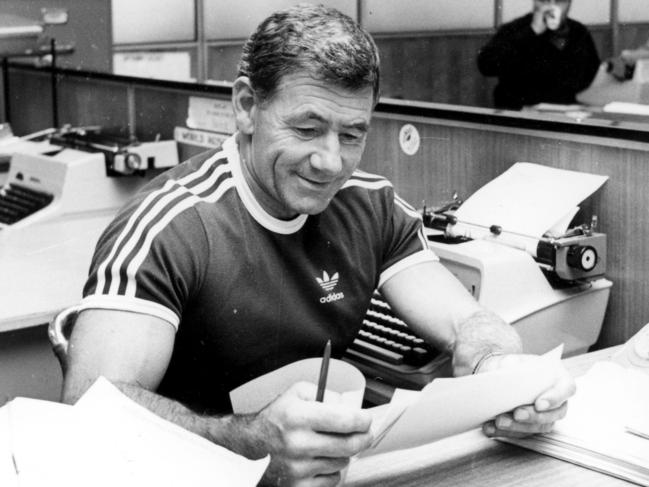
He broke the story of Tom Hafey’s shock departure as Richmond coach at the end of 1976, getting the yarn off an impeccable source late one night.
He went around to Hafey’s doorstep and waited for the legendary coach to arrive home for comment before filing the exclusive.
He protected the source for the rest of his life; much to Tommy’s chagrin.
But Hafey couldn’t stay angry with him for long. Besides, Scotty and his wife Lorraine were exceptionally close friends with Tom and his wife Maureen.
Friendship was one thing; but doing his job without fear or favour was just as important to him.
It was the same with his relationship with Ron Barassi, with whom he ran the Cherry Tree Hotel in the backstreets of Richmond.
It was there in the 1980s that infamous drug lord Dennis Allen held Scot (who was the publican) and his son Lincoln at bay with a gun, threatening their lives.
Scot and Lincoln wanted to rid the hotel of drugs and while there were a few scary moments, they won out in the end.
He famously often knew the fate of coaches before they did, as was the case in the 1993 pre-season.
This reporter quizzed him as he packed his bag late one afternoon and looked to make a quick exit for a North Melbourne training session.
I asked him why the haste? He replied: “Schimma (Wayne Schimmelbusch) is about to get the sack.”
He knew it, and reported it, before anyone else.
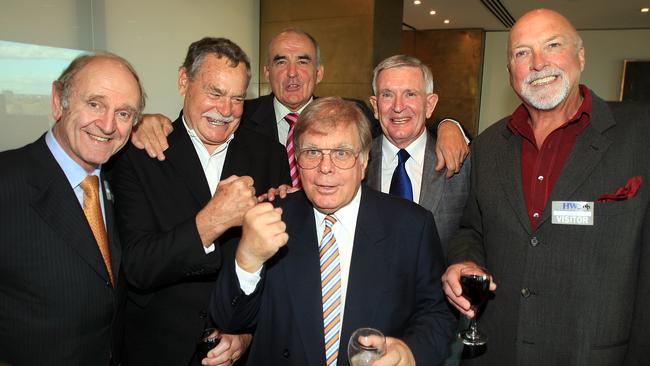
CELEBS AND OLYMPICS
Scot regaled in stories of meeting sports stars and world figures.
His tales almost had you believe that the celebs were just as honoured to meet Scotty, and given his charm, some might have been.
He shook hands with US president Lyndon Johnson on his Australian tour in 1966 and test drove James Bond’s Aston Martin from the Goldfinger movie.
As his colleague and former editor Chris de Kretser recalled, a young reporter assigned to join him later described it as one of the most frightening rides of her life.
The reason: Scotty kept threatening to push the button on the car’s renowned ejector seat.
He met and interviewed one of his heroes, Muhammad Ali, then known as Cassius Clay, and decades later watched almost misty-eyed as the former heavyweight champion – racked by Parkinson’s disease – lit the Atlanta Olympic cauldron in 1996.
He attended nine Olympic Games, including the 1972 Olympics in Munich where eight Israeli athletes were killed in a terrorist attack.
He would recall: “Only a few hours earlier I stood in a phone box near the Israeli compound phoning my reports to Australia. Then I stood, my nose pressed against the wire barricade, in the midst of the Games’ blackest moments.”
At Barcelona in 1992, he chatted with South African president Nelson Mandela, describing him as “tall, kind and very receptive” to questions.
Four years later, he lined up for four hours to get a poolside seat to watch the 1500m at the 1996 Olympics, witnessing Kieren Perkins’ extraordinary gold medal win.
He turned to his former editor and Olympic historian Harry Gordon and said: “I hope you realise you’ve just witnessed perhaps the greatest Olympic moment.”
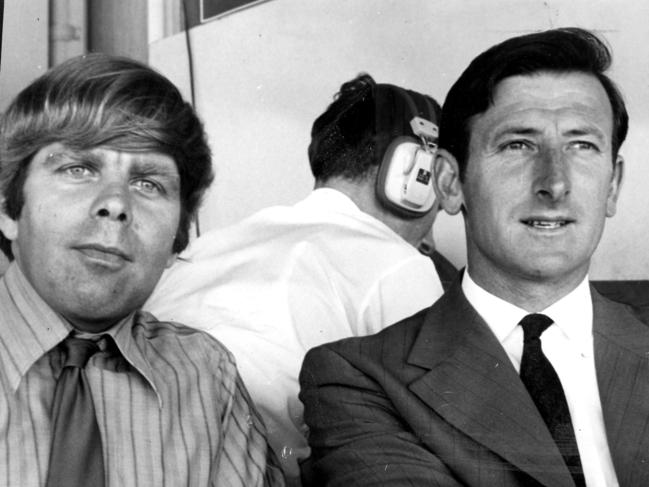
PUNCHLINES, PART ONE
Scotty was only half-joking when he said editors told him to limit his holidays because circulation dropped without Palmer’s Punchlines.
Many editors who worked with him, including Gordon, de Kretser, Colin Duck, Alan Howe and Peter Blunden, knew the importance of his column to the readers.
“I was privileged to have him as my sports editor on the inaugural Sunday Sun where we witnessed first-hand the pull and popularity he had with the public and his ability to find a good story,” de Kretser said.
Scot condensed some of footy’s biggest stories into a handful of paragraphs and revelled in telling the on and off-field stories of some of the game’s most marketable players.
His favourites included Trevor Barker, Shane Crawford, Sam Newman, Warwick Capper, Darren Millane, Sam Kekovich and a host of others.
A huge part of his column for many years was the Punchliner girls, and he always followed their success in other endeavours.
One Punchliner was a young Simone Callaghan, who would later go on to marry Shane Warne.
Guess who broke the engagement story. You guessed it – Scotty did!
He was disappointed when a decision was made after 20 years to end the Punchline girls, though he accepted the umpire’s call, despite two petitions to reverse the decision.
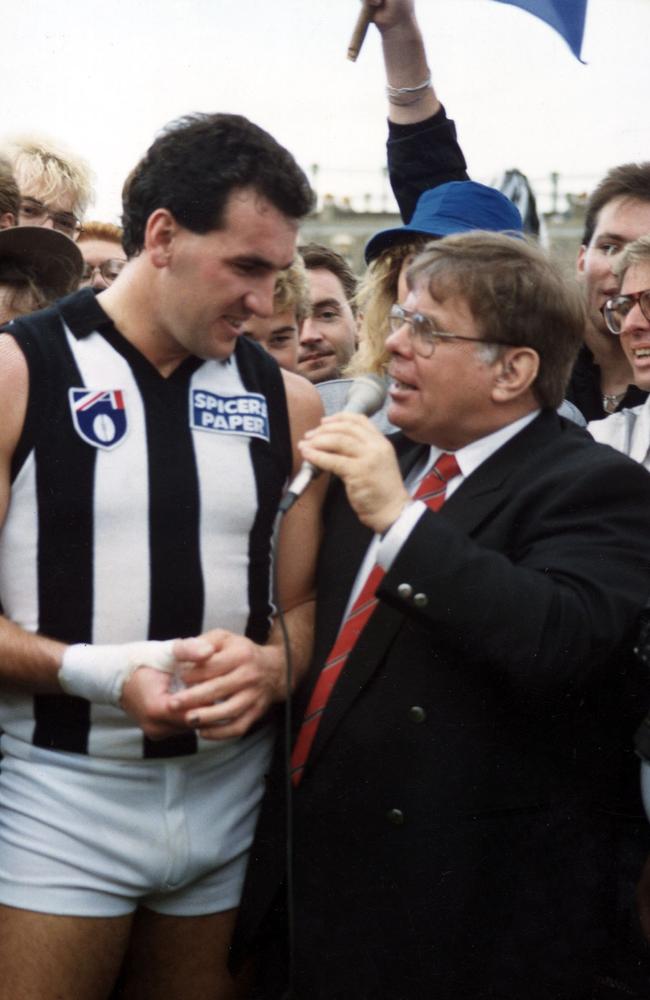
PUNCHLINES, PART TWO
When his good friend and TV executive Gordon Bennett asked Scot for advice about making Seven’s Saturday Night Replay more newsy, it seemed natural that he got the gig.
It turned out to be a perfect match, even if early on the cameramen used to call the prerecorded segment ‘Scotty Lotto”, in reference to how many takes it took.
In the end, they decided to go with it live, and the segment became part of the Saturday night staple.
It was perfectly imperfect, complete with a few word stumbles.
There was the time he breathlessly said “Carey McKernahan” had twinged his hamstring. Was it Wayne Carey, Corey McKernan or Stephen Kernahan?
Or the time he said Ron Barassi’s barber was prepared to sign an “afro-davit” that the legendary coach wasn’t dying his hair black.
Viewers also saw the lighthearted pranks that took place behind Scot as he beamed in live from the offices of the Sunday Herald Sun.
The sub-editors became a part of the cross, walking behind Scot, moving pot plants and throwing papers.
It carried on for years until one was spotted walking past with a pot plant on his head. Scotty loved the vaudeville of it all.
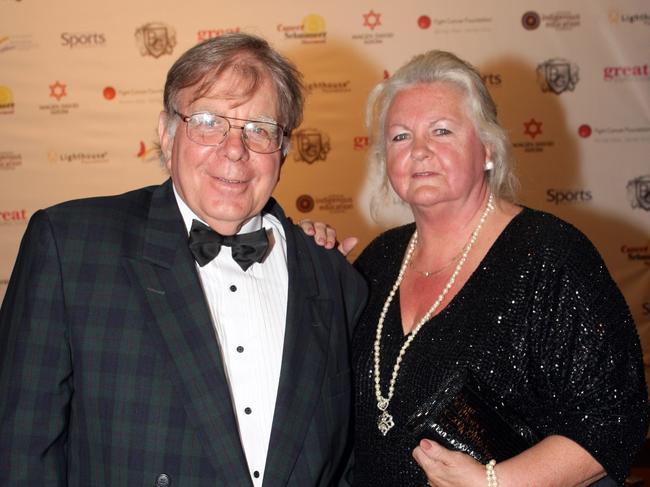
HIS GREATEST PARTNERSHIP
Anyone who knew Scot understood quickly that his greatest partnership wasn’t journalism.
It was his marriage to Lorraine that endured for more than 60 years, and produced two children Jodee and Lincoln.
In a profession not especially conducive to long-lasting marriages, Scot’s union with Lorraine was the secret of his success.
He never stopped talking about his family.
Lorraine grew up down the road from him. He admired her from afar, then gained the gumption to step off a tram early on his way home one day to declare his intentions.
He would later say: “I thought, if I’m going to talk to this sheila, I better get off (the tram) now.”
Thankfully, he did, and they enjoyed the most wonderful of marriages.
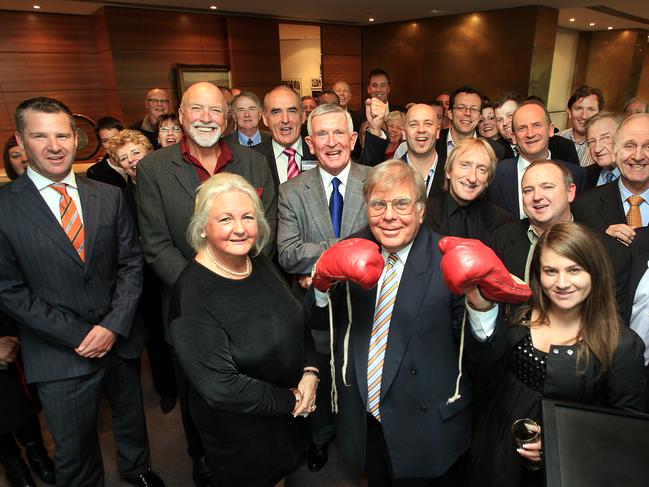
RETIREMENT
Scot never truly walked away from news. He remained as hungry as ever for knowledge, right until the end.
In retirement, he endured two different bouts of cancer – and fought back both times – and helped Lorraine through her own battle as she had done for him not too long earlier.
Their partnership thrived when they moved permanently to Sorrento.
He fell in love with Sorrento Sharks and was an enthusiastic member of the “prayers” each Sunday when a group of local identities would tell tall tales but mostly true.
Some even dubbed him “the King of Sorrento”.
Scot remained an enthusiastic champion of young journalists, giving his time and his influence freely.
The journalist writing this story may not still be in the industry without his mentoring and friendship over more than 30 years.
He wrote a number of books alongside his friend Greg Hobbs, but he was too busy enjoying his life to document his remarkable career.
But the millions of words he wrote in his columns will forever tell the story of his life, and in a way, the story of footy and Melbourne across the past 70 years. Thanks for the memories, Scotty!



